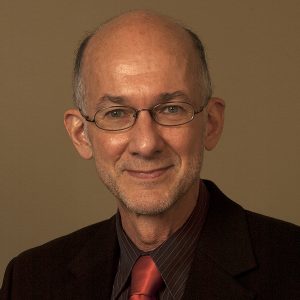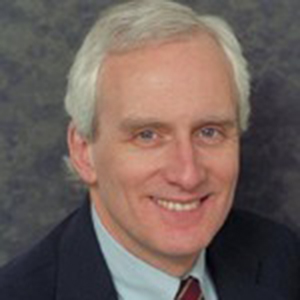
On July 7, School of Public Health Professor Roger Feldman retired after 40 years at the school. As a health economist in the school’s Health Policy & Management Division, he is a regular contributor to journals of economics and health services research and served as consultant to national agencies such as the U.S. Department of Health and Human Services and the Congressional Budget Office.
Below, two colleagues share their well wishes.
From Health Policy & Management Division Head and Professor Tim Beebe
The purpose of this note is to inform you that our friend, Roger Feldman, will be retiring on July 7, 2017. I have mixed feelings about this! We will miss his strong, wise, and regular presence on our faculty, but after nearly 40 years at our school, he deserves to let go of some everyday duties and focus on the next phase of his life.
And that choice, for the immediate future, is to carry on with his work.
As Professor Emeritus and from his office at PWB, Roger will serve on three PhD committees until the candidates finish their degrees. He’ll also continue his collaborations with Bryan Dowd evaluating the Next Generation Affordable Care Organizations (ACOs) efforts, a multi-year project that is likely to shape Medicare policy towards ACOs. With Jeah Jung, he will assess the cost-effectiveness of new drugs to treat hepatitis C in Medicare.
This dedication is typical of Roger, who used his sharp intellect, extensive experience, and awareness of the practical issues of life to become one of the world’s leading health economists — a field of study he helped to create.

Roger began his career at the School of Public Health as an assistant professor of economics in August 1978. He was one of several assistant professors John Krawlewski hired to establish the Center for Health Services Research. The Center grew into the present-day Division of Health Policy and Management. Roger’s longstanding contributions and accomplishments form the foundational pillars upon which our division stands today and he was a guiding influence in establishing our tradition of collaboration.
Beyond the above, other notable accomplishments include:
- From 1984-85, Roger served as a senior economist to the President’s Council of Economic Advisors
- In 1995, he was named Blue Cross Professor of Health Insurance and Professor of Economics
- In 2012, Roger was inducted into the U of M Academic Health Center’s Academy for Excellence in Health Research
Roger is among a cadre of division faculty and staff who were the first to show that, when done right, managed care can cut costs without hurting quality of care. And along with Doug Wholey, he was the first to address HMO market structure and premiums.
Roger led the way in identifying sustainable, effective health system models and conducted seminal work on improving the financing and delivery of Medicare. His work has led to improvements in the way we access and pay for our health services. At this critical decision-making time around our nation’s health care and its affordability, Roger’s life work is of utmost importance and will continue to influence the debate over health care and insurance reform.
Roger is deeply respected and admired by his many colleagues around the world and, during his long career, has influenced and inspired generations of health economists. His goal has always been to use his skills to help forge and support public policy and improve lives.
From Longtime Colleague, Professor Bryan Dowd
Notes like this one, and most letters of reference, usually start by listing the person’s academic credentials and accomplishments, followed by a perfunctory compliment regarding their character. Since I think that’s backwards, I’ll start with Roger’s character. His academic accomplishments, nicely detailed in Tim Beebe’s announcement above, speak for themselves.
Around the time I was promoted to associate professor with tenure at the University of Minnesota, I agreed to spend a week as a visiting professor at the University of Kentucky. While there, I was asked to meet with some of their Ph.D. students. “You seem to have done fairly well at Minnesota,” they said, “Do you have any advice you can share with our doctoral students?” My response was, “It’s simple. You just show up the first day of work at your job and discover that John Kralewski is your boss and Roger Feldman is in the office across the hall. The rest is a cakewalk.” That probably wasn’t very helpful to the students at Kentucky, but it remains my most honest self-assessment of my early career at Minnesota.
I arrived at the University of Minnesota in August 1980, as a Research Fellow. I had finished my coursework and exams at the University of Pennsylvania, and had the data for my dissertation, but had not finished the analysis. The unit that now is the Division of Health Policy and Management was then the Center for Health Services Research, housed in the Vice President for Health Sciences office. Roger had been on the Center faculty for several years, and our offices were in Powell Hall — the old nursing dormitory located at the current site of the main hospital.

During my years at Penn (1976-1980) there were not a lot of health policy people. Mark Pauly and Patricia Danzon had not arrived yet and all the bright young health economists who came to Penn in the 1990s and 2000s still were grammar school. Drs. John Eisenberg, Sankey Williams, and Sandy Swartz were working away in the medical school, and were very helpful to me, as were other faculty who didn’t have an explicit interest in health-related topics. But Roger represented my first encounter with an economist who specialized in health.
Roger took an immediate interest in my dissertation on the economics of physician practices, which remains an important and somewhat neglected research topic today. He didn’t have to do that. This was before the era of formal mentorship of junior faculty. Roger’s advice allowed me to write a much better dissertation than I would have been able to write at Penn. Roger taught me to write (by striking out every other word in my drafts) and how to analyze a problem (if you can’t demonstrate the point with a simple numerical example, it’s probably wrong).
I quickly observed that my experience working with Roger was not unique. He does not wait for people to come to him for help. He actively seeks out other people, particularly young people, whose careers he can promote. He enjoys other people’s successes and I never have heard him utter a derogatory remark about anyone in our Division or anywhere else for that matter. I recently said to Tim Beebe, our Division Head, that the more I hear about other academic units, the more I realize that our Division has the “secret sauce” — a culture in which everyone is on the same team, working to promote and enhance each other’s accomplishments. That culture has allowed us to thrive when other units were falling on hard times. I credit Roger as one of the key players who created and maintained that environment.
Roger simply is the best technical health policy economist I ever have encountered. He carries microeconomic and industrial organization textbooks and most of the latest health economics literature around in his head. If you ask him a question, you can be assured that his answer, usually delivered on the spot, will be identical to the one you yourself would find after spending several days reading the appropriate textbooks and articles. If you had Roger down the hall, the advent of Google Scholar probably struck you as superfluous.
For me, Roger’s career represents the gold standard of scholarship, teaching, and public service. As emeritus faculty he may take on less teaching and advising, but fortunately, he isn’t going anywhere and his exemplary scholarship and service to local and national public agencies will continue. I owe much of my career to Roger and others who have made our Division the very best place to work for almost 40 years. I hope the next generation of faculty appreciate their good fortune in landing at Minnesota will be able to maintain the collegial and highly productive environment that Roger has helped to create.

